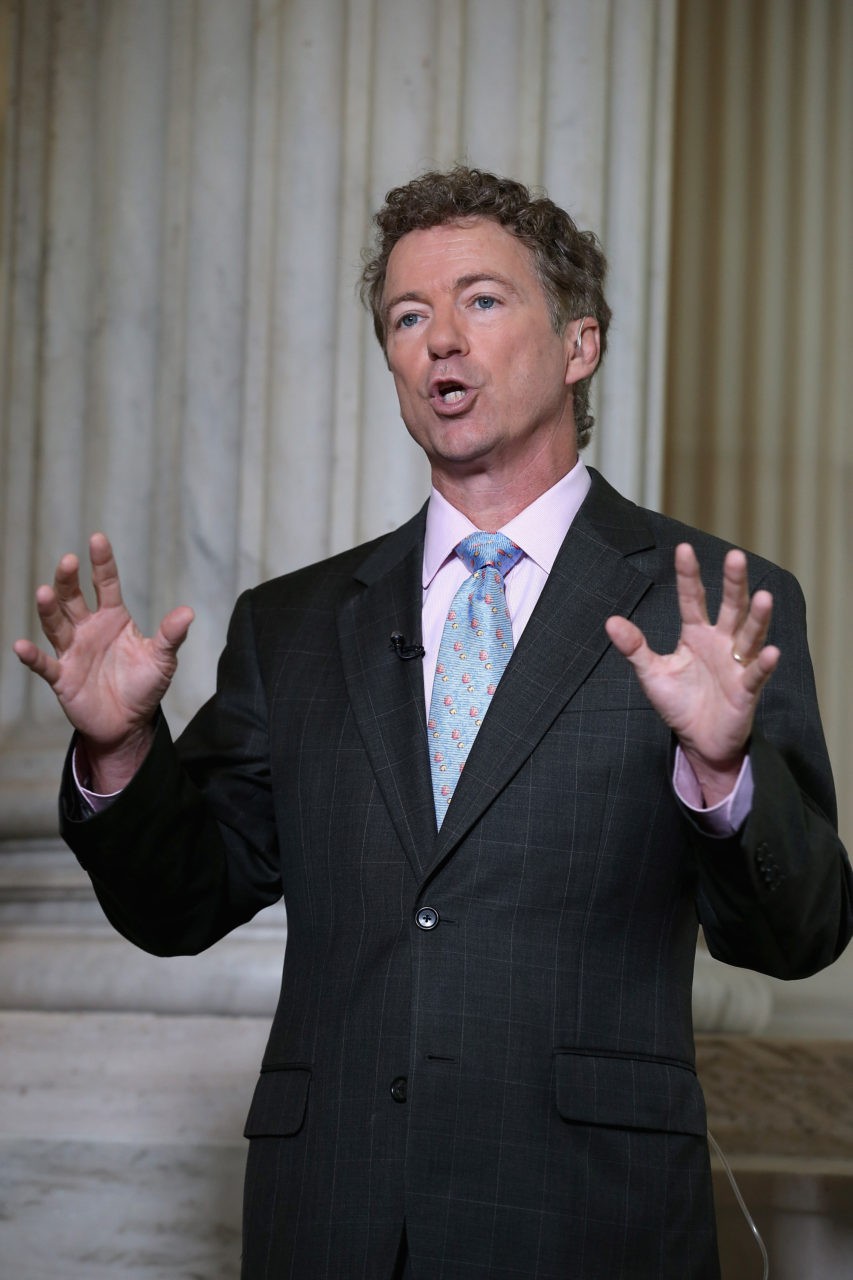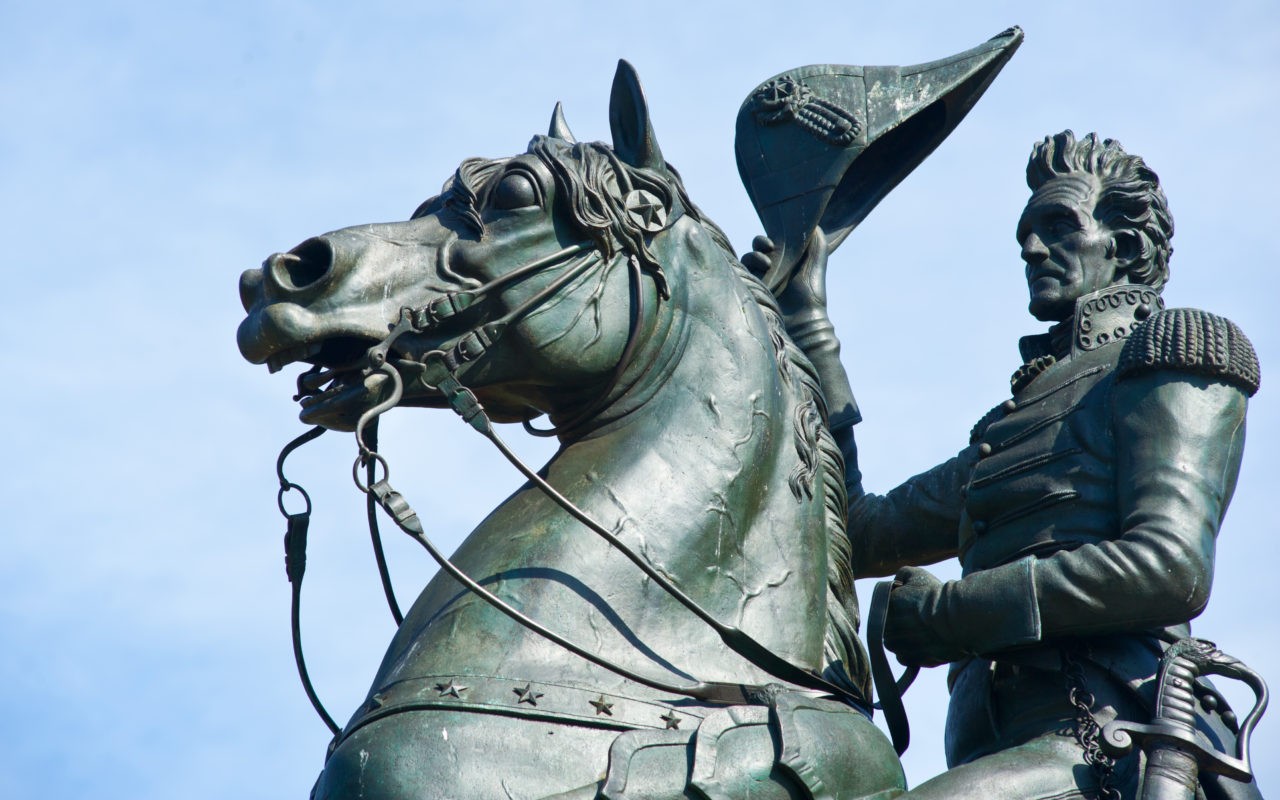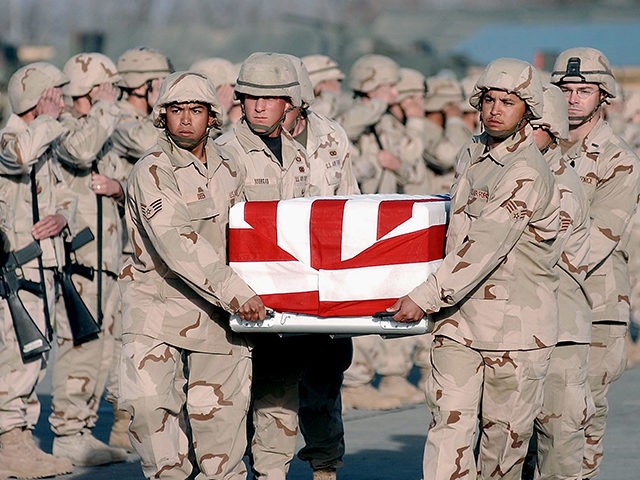Trump: Then and Now
Four years ago, on November 21, 2013, then-private-citizen Donald Trump tweeted:
We have wasted an enormous amount of blood and treasure in Afghanistan. Their government has zero appreciation. Let’s get out!
Yet just last month, President Trump sounded a much different tune. He declared in his nationwide TV speech on August 21:
With our resolve, we will ensure that your service and that your family’s will bring about the defeat of our enemies and the arrival of peace. We will push onward to victory with power in our hearts, courage in our souls, and everlasting pride in each and every one of you.
In other words, the new mission is to stay, and win. And just on Tuesday, speaking to the United Nations General Assembly, Trump reiterated his new stance:
Last month, I announced a new strategy for victory in the fight against this evil in Afghanistan. From now on, our security interests will dictate the length and scope of military operations, not arbitrary benchmarks and timetables set up by politicians.
In other words, yes, the Trump administration now seeks victory in Afghanistan. And while Trump didn’t say it, that might take awhile. Like, maybe, forever and a day. So while Trump declares that politicians shouldn’t be micromanaging the combat, he is, in fact, macro managing it; he’s saying we have to stay and keep fighting indefinitely, hoping for victory.
Without a doubt, it’s nice to have an American president who takes pride in our military and wants our country to win. And of course, if we put our armed forces in harm’s way, we should seek triumph.
Yet stalwart patriotism and support for our troops as they fight doesn’t eliminate the need for wisdom in determining when and where they fight. That is, before charging ahead to more bloodshed, we should be asking, Is it smart for us to have our troops in harm’s way in Afghanistan?
Prior to winning the presidency, Trump had his answer: No, it’s not smart.
Yet now that he’s in the White House, Trump has changed his mind. To be sure, many will note that Trump made only a single mention of Afghanistan in his lengthy speech, plus another reference to the Taliban, who were lumped in with other “loser terrorists.”
Meanwhile, of course, the headlines from Tuesday’s U.N. speech will be about North Korea. And it’s good and proper that Trump is focusing on that rogue nation. After all, the North Korean “Rocket Man,” Kim Jong Un, is openly threatening the U.S. with nuclear destruction. So of course that calls for a stern response, including dire warnings of possible U.S. retaliation.
And yet Trump’s focus on North Korea only underscores the reality that Afghanistan is now an almost-forgotten war—and that can’t be much comfort to the thousands of G.I.s on the ground there.
And so we must ask: What happened? After winning on a tough-minded“get out” platform, why did he change his mind? Why is he committing to Afghanistan, seemingly, forever?
Blood and the Ballot Box
During the 2016 subsequent presidential campaign, Trump continued his steady criticism of the Bush 43-Obama Afghanistan policy. “It’s a mess,” he said on the stump, “It’s a mess.” Speaking of the presence of U.S. troops in that faraway land, his skepticism about the mission shone through: “Are they going to be there for the next 200 years?”
Yes, that was a piercing question, and it put Trump in stark contrast to most of his Republican rivals for the 2016 nomination, who generally embraced the neoconservative platform of permanent war in Afghanistan.
As everyone knows, the vast majority of Americans are sick and tired of the Afghan war. According to a Fox News poll released in late June, 62 percent of Americans opposed sending more combatants to Afghanistan, while just 25 percent were in favor.
This public exhaustion is fully understandable, because, as everyone knows, we’ve been fighting that forlorn war for 16 years. Back in 2001, we rightly evicted the Taliban regime for having sheltered Osama bin Laden, mastermind of 9/11. (The actual 9/11 terrorists, of course, were operating mostly out of Germany and the U.S.)
Yet unfortunately, President George W. Bush didn’t have the sense to quit while we were ahead. That is, having accomplished the proper punitive mission against the Taliban, we should simply have left, leaving some bodies and craters as a reminder of what happens when you mess with Uncle Sam.
And so, with the full support of top leaders in both parties, Bush chose to stick around; soon, we were up to our armpits in the quagmire of nation-building. And this in a land that’s not a nation—and at this rate never will be. (And then, as a way of doubling down on error, Bush invaded Iraq—which had nothing to do with 9/11.)

Caskets bearing the remains of fallen U.S. servicemen in the cargo hold of a transport plane, April 28, 2005. (U.S. Department of Defense/The National Security Archive)
Interestingly, one leading figure who reliably supported the Bush neocon policy was Hillary Clinton, who has always herself been a super-interventionist. Way back in 2002, she enthusiastically voted for the Iraq War. And the bloody frustrations of the next decade-and-a-half had no impact on her thinking, including in regard to Afghanistan; after all, it wasn’t as if anyone in her family was connected to the fighting.
Some headlines from 2016 illuminate Clinton’s stubborn hawkishness. Here’s Mother Jones: “Hillary Clinton Really Loves Military Intervention.” And here’s The New York Times: “How Hillary Clinton Became a Hawk.” Finally, this header, from Foreign Policy: “Hillary the Hawk: A History: From Haiti to Syria, the Democratic candidate’s long record suggests she’s looking forward to being a war president on day one.
In other words, to the voters, the choice last year seemed clear enough: Trump the war-skeptic vs. Clinton the war-enthusiast.
And so, faced with that choice, many Americans made a fateful decision; despite their Democratic leanings, they went with Trump. In fact, about 8.4 million Americans who had voted for Barack Obama in 2012 voted for the real estate mogul in 2016. Indeed, about 12 percent of those who had voted for Sen. Bernie Sanders in the ’16 Democratic primaries pulled the Trump lever in November.
Some political scientists have drilled down even further, correlating casualties in the overseas wars to newfound support for Trump. As Breitbart News has reported, two academics, Douglas Kriner and Francis Shen, focused on the key blue-purple states of Pennsylvania, Michigan, and Wisconsin—states that the Democratic presidential nominee had carried in the previous five, or even six, elections—and concluded that it was Clinton’s neocon hawkishness that doomed her candidacy. As Kriner and Shen explained, with “even a modestly lower casualty rate,” all three of those Democratic-leaning states might have stayed in her column.
So the best option for Trump should have been obvious: Remember why you won. Keep your promise. Get us out.
America First—or Americans Last?
Instead, Trump has actually expanded American objectives in Afghanistan. His predecessor, President Obama, surged troops briefly, but when that didn’t work, he said, in effect, that we would seek an exit from Afghanistan, albeit a slow-motion exit, timed to occur after the 44th president had left office.
Yet now, in contrast, Trump is talking about winning, which is a lot harder than merely staying.
To be sure, “victory” sounds like a fine idea, but after 16 years of fighting, we might wonder if that’s possible, given the implausibility—to say nothing of unpopularity—of any possible World War Two-type “V for Victory” effort.
We must remember that this is a democracy, or at least ought to be; that is, the American people should be on board with any military strategy. And it’s their country, and they are tired of seeing it bleed. In fact, after the loss of 2,304 service personnel—and the wounding or crippling of 20,000 more—at a cost of more than $1 trillion, well, the folks just aren’t interested in any more pep talks. And so far this year, 11 more Americans have died in the fighting.
Afghanistan is, after all, a country of 34.6 million people halfway around the world. Yes, we can bomb them, but with the world’s TV cameras watching, not to too great an extent. And the real question is: Can we ever persuade the enemy Afghans to stop fighting?
We can forget, of course, the notion of winning over their hearts and minds; after all the blood and treasure we’ve expended over a decade-and-a-half, we know the impracticality of that. And this is especially true when the Afghans’ hostility to the U.S. is being stoked and supplied, in various ways, by its neighbors—Pakistan, Iran, China, and Russia. In other words, victory over the Taliban also means, to some extent, victory over that combined quartet of powers.
Thus it’s obvious: The last thing that Americans want is to send moretroops. And yet that’s what the Trump administration is doing—3,500more were sent earlier this month.
Indeed, building for the long haul, the U.S. is vastly expanding the “Green Zone” in Kabul, to become an even larger fortified city-within-a city. That’s a frank acknowledgement that nothing in Kabul, a metropolis of five million, is safe unless it’s behind a fortified wall. So much for nation-building.
Yes, at a time when there doesn’t seem to be money for infrastructure for Americans, we have plenty of money to spend on infrastructure for Afghans.
So we can see, a kind of reverse miracle has happened: Trump won, and yet the anti-interventionist has become the pro-interventionist. Again, Why?
The Establishment Wins
Have you ever noticed that it’s the globalists who mostly get us into wars, and yet it’s the nationalists who end up doing the fighting? That’s right: The elite globalists decide the policy, and then the regular-folks nationalists carry it out—and die trying.
That skew—between the armchair generals, in their stateside comfort, making abstract decisions, and the grunts on faraway ground dodging real bullets—is what we’re seeing in Afghanistan today. By itself, that’s bad.
And yet the bad gets worse, and even more unfair. How so? Because the political power-skew is also a wealth-skew. That is, the globalist citadels on the east and west coasts—engorged by trade deals, tax breaks, and bailouts—have been gaining in wealth, while the nationalist Heartland–squeezed by outsourcing, downsizing, and Green regulating—is often declining. It’s that money-differential that further empowers the powerful.
Indeed, the globalist elite has become so powerful that it has become increasingly immune to political input from the non-elite. By “political input” we mean elections—they seem to matter less and less.
(Another pair of political scientists, Martin Gilens and Benjamin Page, studied this matter of input from below—that is from the people. Their conclusion: Ordinary folks had essentially zero impact on national policy decisions. Yes, of course, we still have elections—it’s just that they don’t mean much anymore. So sure, politicians can come and go, but the Establishment always stays and wins. It doesn’t have to be this way, of course, but that’s the way it is—at least for now.)
Here, too, we might pause over a reality that Americans are starting to get wise to: the Deep State of Washington, D.C. Virgil started writing about the Deep State last year, observing that the Deep State is where the real clout in D.C. resides.
So yeah, there can be elections with politicians getting the brass ring—or the boot— but the “swamp-dwellers” of the “permanent government” have a veto. That is, they get to decide if they wish to go along with whatever the pesky people just voted for. We might call this the “Deep State Veto.”
Thus we can see: The war in Afghanistan is a part of a larger class war in the U.S.—a class war that the middle class has been losing, for the simple reason that the Establishment and Deep State have vetoed the 2016 election results.
And to further illustrate this reality, let’s take a closer look at how the swamp persuaded Trump to support the endless war in Afghanistan.
The Swamp-Dwellers’ Comeback
The 2016 election was supposed to have change things, even if, as we have seen, as far as Afghanistan is concerned, it hasn’t worked out that way.
Still, without a doubt, the election results caught the Deep State by surprise, and so, post-election, the swamp-dwellers had to scramble to regain their footing. Or, to put that rebounding another way, the swamp-things had to work hard to pull Trump down into their muck.
A few observers could see this happening: Just three days after the 2016 election, the left-leaning British newspaper The Independent offered this perceptive, as well as prescient, headline: “Hillary Clinton sounded more interventionist than Donald Trump—but the Middle East crises Trump inherits could suck him in.” Yes, the swamp has its own special powers of suction.
Of all the Beltway swamp-creatures, the most adroit proved to be the Heritage Foundation, which combines a pro-corporate domestic policy (Heritage is good, however, on immigration) with a neoconservative/globalist foreign policy.
Heritage had not been pro-Trump during the campaign, and yet nevertheless, amazingly, after he won the election, the President-elect discovered that he had a whole building full of new best friends—the dwellers at 214 Massachusetts Avenue, N.E.
And so, through a mysterious process of Washington osmosis, Heritage staffers sluiced their way into Trump’s transition team. Indeed, by December, CNN had headlined a story on Heritage: “Meet Donald Trump’s think tank.”
As they say in D.C., personnel is policy. In other words, if Heritage staffed up Team Trump, well, then the new administration would inevitably reflect Heritage thinking.
Meanwhile, those apparatchiks who remained at Heritage played the Beltway game: They eagerly talked up their favorites within the White House, while being careful, always, to flatter Trump, too. Here’s a sample cheerleading headline: “5 Reasons H.R. McMaster Is the Right Leader for a Tough President.”
Yet for all his reputed toughness, Trump proved to be pliable, after all, on the subject of Afghanistan. And so it was that in August, his campaign pledges notwithstanding, he announced that he would be sending more troops—just as McMaster, Heritage, and much of the Establishment had always wanted.
As an aside, we can add that that this Afghanistan policy reversal obviously bothered Trump; he seemed distinctly glum in his TV presentation, admitting, “My original instinct was to pull out.” Still, reluctance to send troops doesn’t mean much if the troops get sent—the bottom line is the same.
Rand Paul’s Valiant Fight to Help Trump Be Trump
The reaction to Trump’s flip-flopping speech was instructive, as well as saddening. At the time, many of the President’s key allies, such as Sen. Rand Paul, were dismayed; as the Kentuckian said, “The mission in Afghanistan has lost its purpose, and I think it is a terrible idea to send any more troops into that war.”

Sen. Rand Paul (R-KY) on Capitol Hill (Chip Somodevilla/Getty Images)
Indeed, more recently, Paul has been trying to undo the 2001 Authorization for the Use of Military Force (AUMF), voted on just three days after 9/11, which has provided an increasingly thin legal justification for various military interventions.
In a September 15 interview with Breitbart News, Paul expressed his frustration about the persistence of pro-war hawkery. Interestingly, Paul took the view that Trump himself knew better but, nonetheless, had let himself get talked into a continuation of the combat:
I think the president’s instincts, his instinct as he said the other day was to end the Afghan war and not to get more involved. His instinct all along has been that the Iraq war was a mistake, and he’s said the same thing recently about the Afghan war. I think he still believes that, but I think the problem is he’s surrounded by people who talk in his ear that are from the military who all think it is a military solution. I just think that a war for the country of Afghanistan is not winnable because Afghanistan is not really a country; it’s a bunch of different tribes and they don’t really want to be a country. [emphasis added]
Paul went on to express the hope that one day the President would reassert his authority within his own administration. And yet in the meantime, the Kentuckian continued, others have to do their part, too, by speaking up:
I think his supporters need to be loud and remind him of what he said [about Afghanistan] and see if we can get him to harken back to it.
And yet, Paul concluded, if the President won’t seek to stem the bloodletting, then lawmakers should start exerting its own constitutional authority:
In Congress we have our own responsibility to try to assert ourselves and say “Hey, we need to be involved in this war-making power.”
Paul has been valiant in his effort to keep the pressure on the Afghanistan status quo. He has tried, for instance, to revise that 2001 AUMF, the one that gave the neocons a blank check. And yet on September 13, the Senate voted to block Paul, 61:39—here’s the roll call.
Needless to say, interventionists have expressed delight at Trump’s turn. The Heritage Foundation was happy, of course, and many others in the elite D.C. think-tank ecosystem—including those who had been overtly hostile to the President—suddenly found something to like about him.
Indeed, Trump seems to be have gained a “strange new respect” in places that have always despised him. One such was a liberal globalist think-tank, the Brookings Institution, which bannered, “Donald Trump makes right moves in Afghanistan.” (Needless to say, that’s the extent of Brookings’ affection for Trump.)
In addition, in the Bezos-ified sector of the swamp establishment, the ultra-globalists at The Washington Post—who have openly and endlessly hated Trump—produced, just this once on August 22, a non-hateful headline: “Trump’s welcome self-correction.” (Once again, that was the briefest of lulls, to be sure; the Post has long since gone back to hating Trump.)
In fact, even that most ardent of Never Trump Republicans, Sen. Lindsey Graham, ventured some rare public praise for the President.
So we can see: If Paul is unhappy, and the likes of Brookings, the Post, and Graham are happy, then something is wrong. Trump hasn’t drained the swamp—the swamp is draining him. And draining, as well, the Heartland.
We can note that the D.C. Establishment doesn’t think that we can win in Afghanistan, any more than does the average American.
The difference, though, is that the Beltway globalists who got us into that quagmire don’t want to admit to having made a mistake. So it’s easier, for these armchair generals and chalkboard nation-builders, to just kick the Afghan can forward for a few more presidencies.
Such blame-evasion is a strong motivator for swamp-dwellers, although, of course, it’s a weak rational out in cannon-fodder country. And so that’s why the swamp-things are so happy that on matters such as Afghanistan, elections don’t seem to matter anymore.
Sweeping Out the Swamp: Lessons for Trump Nation
So yes, once again, the swampy globalists have scored a policy victory. Once again, the well-financed elitists will get to sit in their suites and cubicles, talking through their grand theories, typing up their talking points, chalking out their optimistic game plans.
Meanwhile, half a world away in Afghanistan, other Americans, lacking those fine Beltway credentials, will go slogging through the fields, seeking to dodge bullets and IEDs, while attempting to win the un-winnable—that is, the peacefulness of 35 million Afghans, plus any number of Pakistanis and others who happen to come infiltrating.
So we can ask: Must it always be this way? Will the globalists always get the best of the nationalists? Will the Deep State always win? Will the swamp always remain the same? Is the clout of the permanent government insiders so great that it can’t be overcome?
Yet, actually, change is possible. It just takes time—more time, in fact, than a single presidential election. A look back at history tells us so.
Trump, the 45th president, has often been compared to Andrew Jackson, our seventh president. Jackson, a fiery populist, was loathed by the D.C. swampists of his time, who saw themselves as coldly anti-populist. Thus the political battle, populism vs. elitism, was joined—and it was quite a fight.

The statue of President Andrew Jackson in Lafayette Park across from the White House. (KAREN BLEIER/AFP/Getty Images)
Yet even in the face of the most intense opposition, Old Hickory never stopped pushing his agenda; his big idea was the expansion of the franchise, so that more Americans could vote—and, hopefully, vote for him. By dint of enormous effort, Jackson and his bottom-up allies succeeded in overturning the top-down old order.
In fact, having been elected in 1828, Jackson was re-elected in 1832. And so that tells us something right there: A change-agent president needs not only to win, but to win again.
Moreover, even after Jackson left office, the Jacksonian Democrats kept winning; in total, they won six of eight presidential elections from 1828 to 1856. And after that, the old order was gone; the swamp of that era was finally drained. It had taken a brand new party with its own populist vision—the Republican Party of Abraham Lincoln—finally to defeat the Jacksonians.
We needn’t rehash any more history to see the key lesson: If a president and his party wish to make real change, they must put together a genuine juggernaut—an enduring political machine. That is, one victory must be followed by another, and another. Only then will the swamp dry up, and the Deep State Veto be overridden.
So perhaps in our time, too, some regional economic justice can be restored, allowing the cronyistic power wrested from the coasts, and the Heartland once against getting its fair share of economic wealth and political power.
Trump may, or may not, prove to be the equal of Jackson—the early results are certainly discouraging to the neo-Jacksonian Trump Nation. And yet even if Trump proves to be Old Hickory 2.0, the lesson of history is plain: It will take more than one presidential victory to do the draining.
So Trump Nation has a lot of work to do.

COMMENTS
Please let us know if you're having issues with commenting.